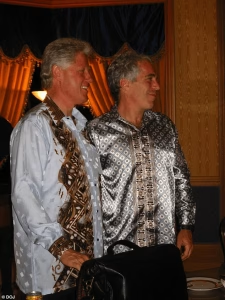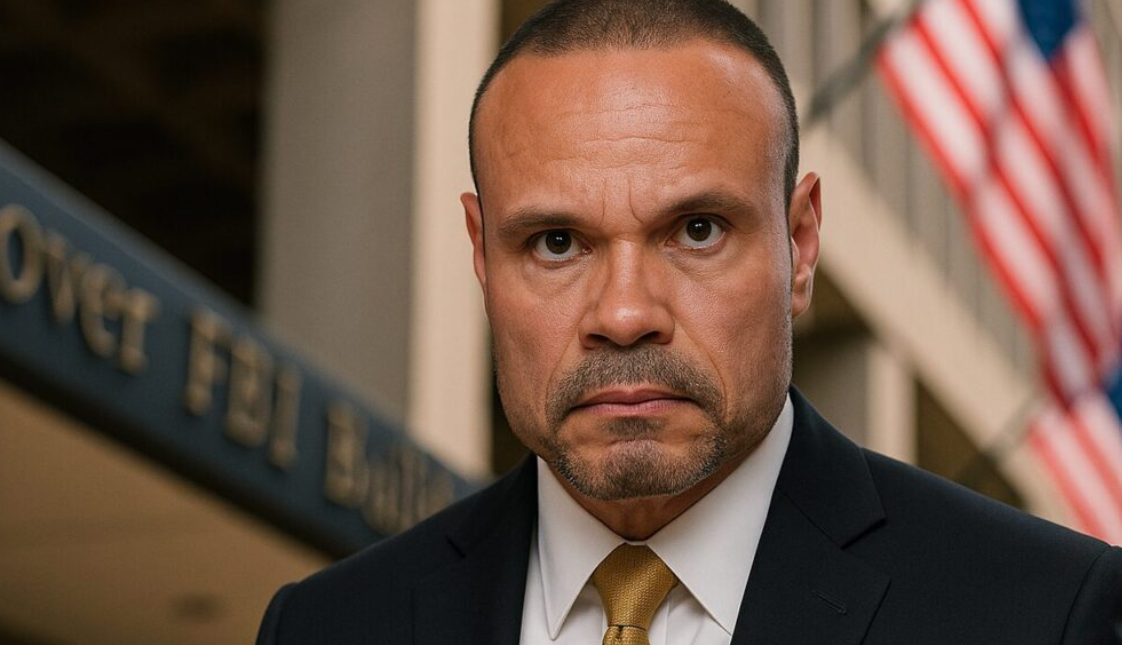Deputy Director of the FBI Dan Bongino joined Megyn Kelly this week for a high-profile interview in which he emphasized that the Bureau’s investigation into the September 10 assassination of conservative activist Charlie Kirk is far from over.
Bongino, a former Secret Service agent turned FBI official, spoke candidly about the scale of the inquiry, the thousands of tips investigators are still pursuing, and the critical importance of not jumping to premature conclusions about who may have been involved or what may have motivated the suspect.
The conversation, which aired on Kelly’s SiriusXM program and quickly spread across cable news, underscored both the seriousness of the case and the political stakes that surround it.
Bongino: “This Is Not the End”
Bongino began by making clear that the FBI’s work remains in its early stages.
“We are not done,” he told Kelly firmly. “Anyone under the assumption out there that this is, you know, the end of the investigation is categorically wrong. It’s not even the end of the beginning.”
The Deputy Director explained that thousands of leads have poured into the Bureau since Kirk was gunned down at Utah Valley University. These tips range from eyewitness reports to anonymous claims submitted through hotlines and digital portals.
“Some of them did not pan out. Some of them won’t pan out. But some of them may,” Bongino explained. “We’re exhausting every lead. We’re not done at all looking into any possible support or aiding and abetting in the case.”
His comments were aimed at tamping down speculation that the quick arrest of suspect Tyler Robinson meant the case was effectively closed. Instead, Bongino suggested that Robinson’s capture is only the start of a broader inquiry into networks, motives, and potential collaborators.
Kelly Presses on Advanced Knowledge
Kelly, known for her sharp and sometimes combative interviews, pressed Bongino on whether individuals close to Robinson may have had prior knowledge of his intentions.
“Do we believe the roommate had advanced knowledge of the shooting, given the fact that he clearly received texts from Tyler telling him where to find the gun, what was written on the casings, and so on?” Kelly asked.
Bongino declined to provide specifics but acknowledged that the case raises troubling questions.
“Well, given the cooperation of that subject at this time, I don’t want to say too much about what he’s saying or not saying,” Bongino responded. “However, there are indicators just beyond the roommate that there were a lot of warning signs here in this case.”
Warning Signs and Patterns of Violence
Drawing on his background in the Secret Service, Bongino explained that targeted acts of political violence often follow recognizable patterns.
“When you look at these targeted violence attacks—political assassinations, school shootings—you see a lot of warning signs in advance,” he said. “It’s not random violence. It’s not domestic violence. It’s targeted violence for political or ideological reasons.”
He added that in case after case, those closest to attackers often dismiss threatening behavior as jokes or exaggeration until tragedy strikes.
“We hear this a lot,” Bongino noted. “And I’m not suggesting it’s the case here, but we hear: ‘Oh, I thought it was a joke.’ And I hate the generic advice of ‘See something, say something,’ because it gets blown off. But this happens, unfortunately, all too many times.”
Bongino warned that Robinson, like other perpetrators of political violence, appeared to take “a dark turn” that might have been noticed had friends, relatives, or peers taken troubling statements more seriously.
Balancing Transparency and Restraint
The Deputy Director also emphasized the delicate balance the FBI must strike between informing the public and protecting the integrity of an active investigation.
“I just don’t want anyone in the public to assume my lack of an answer is a problem with clarity,” he explained. “There are just some reasons we can’t talk about certain things, but we really do want to address as many of these issues as we can with the public.”
Bongino’s remarks echoed those of FBI Director Kash Patel, who has likewise defended the Bureau’s decision to release photos and video evidence while holding back certain details until the case proceeds through the courts.
Presumption of Innocence
Bongino also reminded listeners that even in cases of shocking violence, the presumption of innocence remains a bedrock principle.
“Everyone’s presumed innocent in our republic, no matter how vile the crime is,” he said. “Facts are facts. Evidence is evidence. And we really, really feel both Kash and I feel the need to talk to the public here.”
This insistence on due process comes as prosecutors in Utah have already signaled their intent to seek the death penalty for Robinson. Legal observers note that while the FBI continues its probe, defense attorneys are likely to argue that pre-trial publicity—including official statements—could prejudice a future jury pool.
Political Overtones
The interview also highlighted the political currents running beneath the investigation. Megyn Kelly, who has frequently criticized media coverage of conservative figures, pointed to skepticism among Kirk’s supporters that the full truth will be revealed.
Bongino, in turn, cast the FBI’s mission as apolitical, though he did not shy away from noting the ideological dimensions of the attack. “These are targeted acts,” he said, suggesting that Robinson’s alleged animus toward Kirk’s views places the case squarely within the category of politically motivated violence.
That framing aligns with statements by Utah Governor Spencer Cox, who recently remarked that Robinson appeared “deeply indoctrinated with leftist ideology.”
Public Reaction
Clips of Bongino’s comments quickly circulated on social media, with conservatives praising his candor and critics accusing him of over-politicizing the case.
Supporters argued that Bongino’s warning about missed signs is exactly the kind of message needed to prevent future tragedies. Others questioned whether the FBI, under Patel and Bongino, is more focused on public messaging than on quiet investigative work.
Either way, the interview underscored how the Kirk assassination is no longer just a criminal case—it has become a flashpoint in the ongoing debate over political violence, free speech, and the role of law enforcement in polarized times.
Conclusion
For Bongino, the message was clear: the investigation is far from finished. Thousands of leads remain under review, potential warning signs are being scrutinized, and the FBI will continue to probe possible collaborators or ideological networks linked to the suspect.
As he told Kelly, “We’re exhausting every lead. We’re not done at all.”
At the same time, Bongino’s words carried a cautionary note for the public: don’t ignore disturbing behavior, don’t assume the case is closed, and don’t mistake silence from investigators as a lack of progress.
The Kirk case, like many before it, is shaping up to be a long and complicated legal battle. But if Bongino’s warnings are heeded, it may also serve as a wake-up call about the importance of vigilance in the face of growing threats of targeted violence.

James Jenkins is a celebrated Pulitzer Prize-winning author whose work has reshaped the way readers think about social justice and human rights in America. Raised in Atlanta, Georgia, James grew up in a community that instilled in him both resilience and a strong sense of responsibility toward others. After studying political science and creative writing at Howard University, he worked as a journalist covering civil rights issues before dedicating himself fully to fiction. His novels are known for their sharp, empathetic portraits of marginalized communities and for weaving personal stories with broader political realities. Jenkins’s breakout novel, Shadows of Freedom, won national acclaim for its unflinching look at systemic inequality, while his more recent works explore themes of identity, resilience, and the fight for dignity in the face of oppression. Beyond his novels, James is an active public speaker, lecturing at universities and participating in nonprofit initiatives that support literacy and community empowerment. He believes that storytelling is a way to preserve history and inspire change. When not writing, James enjoys jazz music, mentoring young writers, and traveling with his family to explore cultures and stories around the world.







